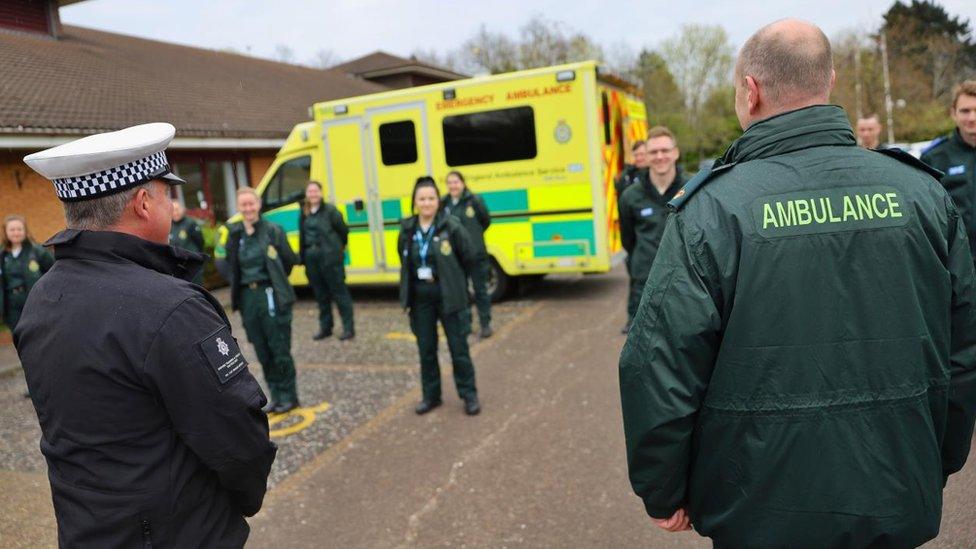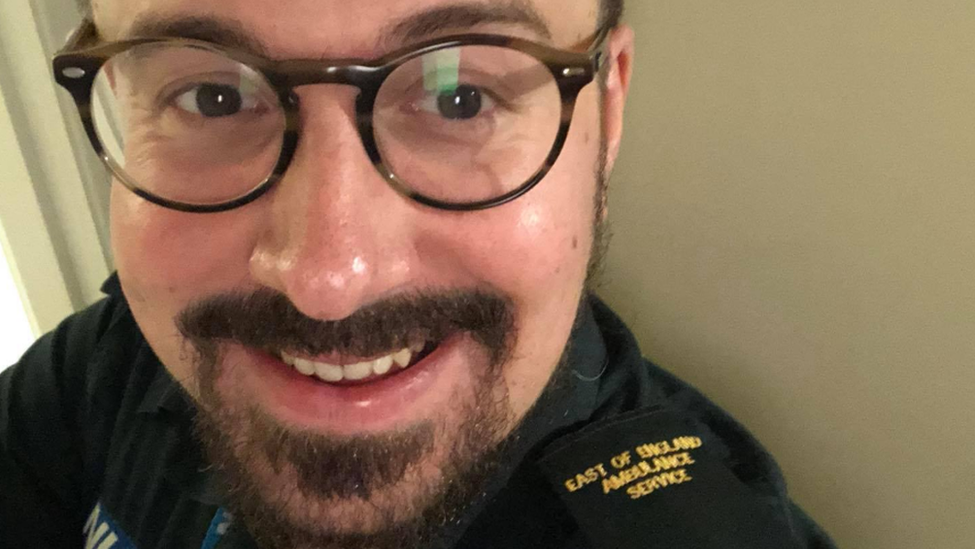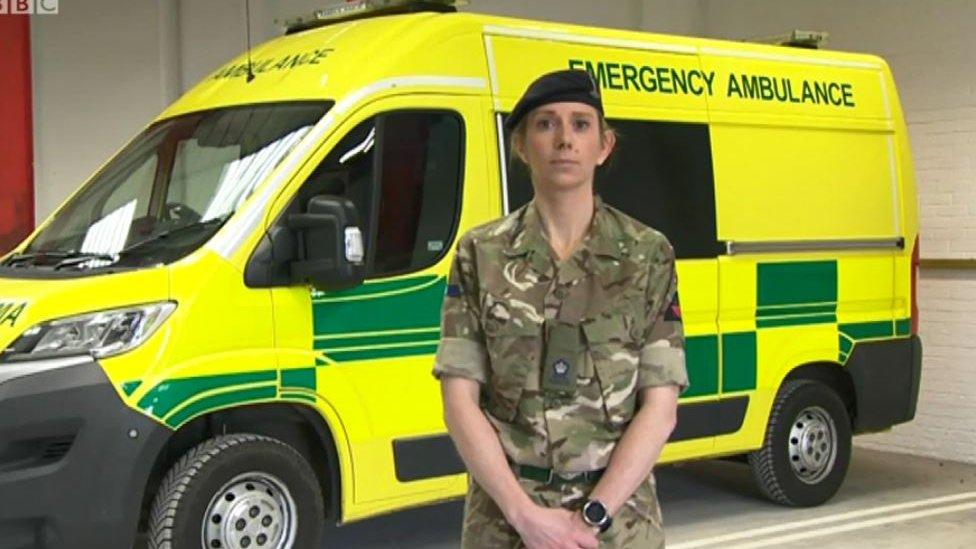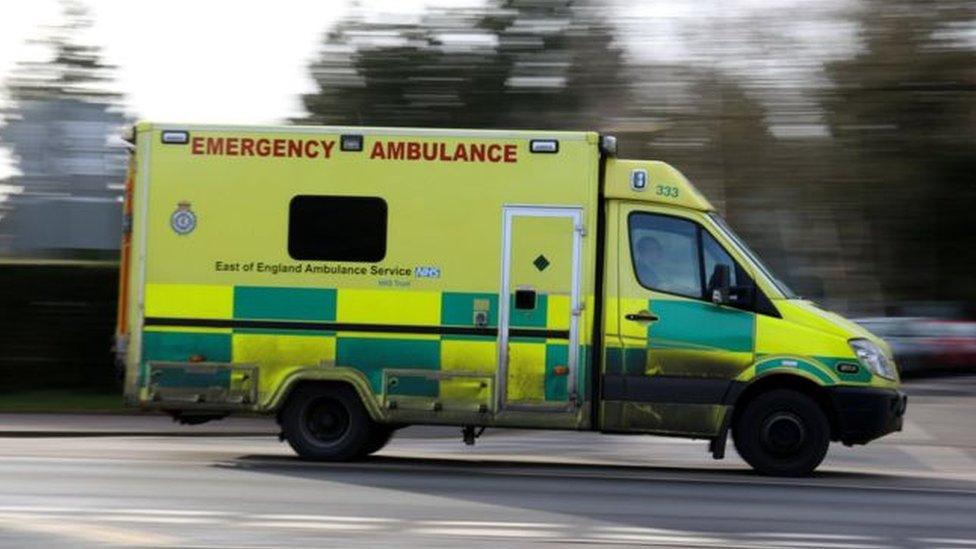Coronavirus: Ambulance service wants 1,000 new workers
- Published

Student paramedics began their three-day driver training on Monday
Cleaners, drivers, admin workers and clinical staff are urgently needed by an ambulance service as it faces "unprecedented demand".
The East of England Ambulance Service (EEAS) says it needs 1,000 temporary staff and volunteers, external immediately.
It comes as student paramedics became the first of an anticipated 200 people on ambulance driver-training courses.
"The Covid-19 pandemic is testing the NHS and EEAS more than ever before," said Dorothy Hosein, chief executive.
"We are at the forefront of responding to the pandemic and helping our communities through this difficult time."
EEAS said it was looking for:
Those with medical experience as a paramedic, nurse, healthcare support worker, or even just people with first-aid training, to work in clinical and clinical support roles
C1 driving licence-holders to drive patient transport vehicles or drive vehicles between sites
Call handlers/dispatchers - five GCSEs at grades A-C required
Applicants with a "willingness to fulfil other support roles" such as cleaning and administration
A three-day driving course, being delivered by Norfolk Police for at least the next six weeks, began on Monday with 12 students paramedics taking part.
It is due to be repeated across the east of England, with military personnel and EEAS staff expected to enrol over the coming weeks.
Fire services will also help with training, with Norfolk Fire Service releasing 62 firefighters - already blue-light trained - to drive ambulances.
Allow X content?
This article contains content provided by X. We ask for your permission before anything is loaded, as they may be using cookies and other technologies. You may want to read X’s cookie policy, external and privacy policy, external before accepting. To view this content choose ‘accept and continue’.
Andy Reid, head of driver training at EEAS, said: "This is an example of collaborative working at its absolute best and will make a real difference over the coming weeks and months.
"Although those taking the course won't be driving our emergency ambulances, they will help us build resilience and cover any gaps caused by staff sickness, while also allowing us to meet increases in demand".
Chief fire officer Stuart Rust said he was pleased so many staff volunteered to help the NHS, and added its core work at the fire service would not be compromised.
Norfolk Chief Constable Simon Bailey the police appreciated the "enormous challenge" facing EEAS and other emergency services and that demand was likely to grow.
"By working together and sharing our expertise across our organisations, we can help provide more resilience to paramedics on the front line and ultimately save lives."

A SIMPLE GUIDE: How do I protect myself?
AVOIDING CONTACT: The rules on self-isolation and exercise
LOOK-UP TOOL: Check cases in your area
MAPS AND CHARTS: Visual guide to the outbreak
VIDEO: The 20-second hand wash


Find BBC News: East of England on Facebook, external, Instagram, external and Twitter, external. If you have a story suggestion email eastofenglandnews@bbc.co.uk, external
- Published2 April 2020

- Published1 April 2020

- Published23 March 2020

- Published16 March 2020
